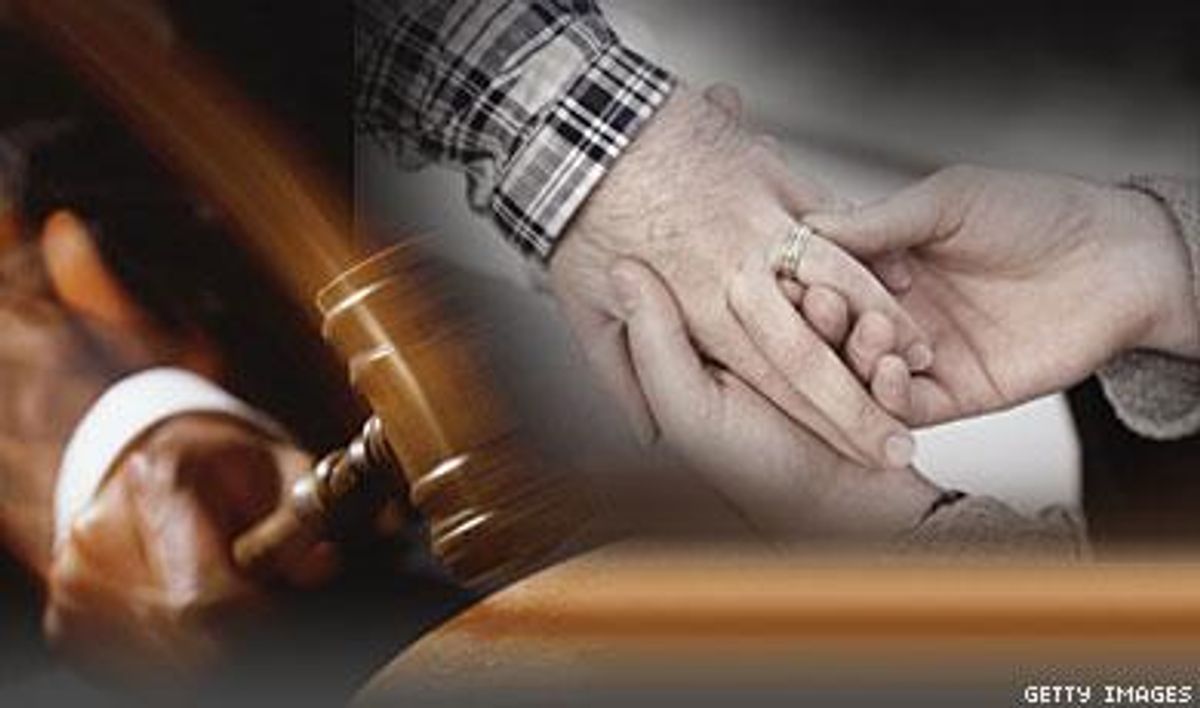The Connecticut
supreme court Friday issued a 4-3 decision in favor of
eight gay couples who were the plaintiffs in Kerrigan and
Mock v. the Connecticut Department of Public
Health, effectively legalizing same-sex marriage in the
state. Connecticut will now become the third
state in the country behind Massachusetts and
California where gay couples are allowed equal
access to marriage. As in California and Massachusetts,
out-of-state couples will be eligible to marry in
Connecticut.
The court found
that it was unconstitutional to deny marriage rights to
gay and lesbian couples and that civil unions, which are
available in the state, were an unequal
institution. "We conclude that, in light of the
history of pernicious discrimination faced by gay men and
lesbians, and because the institution of marriage carries
with it a status and significance that the newly
created classification of civil unions does not
embody, the segregation of heterosexual and homosexual
couples into separate institutions constitutes a cognizable
harm," Justice Richard N. Palmer wrote for the
majority.
The final
paragraph of the decision charged that the equal protection
of gays and lesbians must be prioritized
over traditional views of the institution of
marriage: "...our conventional understanding of
marriage must yield to a more contemporary appreciation of
the rights entitled to constitutional protection.
Interpreting our state constitutional provisions in
accordance with firmly established equal protection
principles leads inevitably to the conclusion that gay
persons are entitled to marry the otherwise qualified
same sex partner of their choice. To decide otherwise
would require us to apply one set of constitutional
principles to gay persons and another to all others. The
guarantee of equal protection under the law, and our
obligation to uphold that command, forbids us from
doing so. In accordance with these state
constitutional requirements, same sex couples cannot be
denied the freedom to marry."
Gay and Lesbian
Advocates and Defenders filed the case in 2004 on behalf
of eight same-sex couples who were denied marriage licenses
in Madison, Conn. The couples had been in committed
relationships ranging from 10 to 30 years, with many
of them raising children. The defendant, the state's
Department of Public Health, oversees the registration of
all Connecticut's marriages.
In June of 2006,
Judge Patty Jenkins Pittman ruled that excluding
same-sex couples from marital rights did not violate the
Connecticut constitution, at which point the
plaintiffs appealed the decision to the state supreme
court.
Oral arguments
for the case took place in May of 2007. "Separate
institutions for different classes of citizens are now
unheard of anywhere in American jurisprudence,"
GLAD senior attorney Ben Klein told the high
court. "Our history has taught us that
separation serves no other purpose than to mark a
class of citizens as inferior." (The Advocate)



















































































Viral post saying Republicans 'have two daddies now' has MAGA hot and bothered